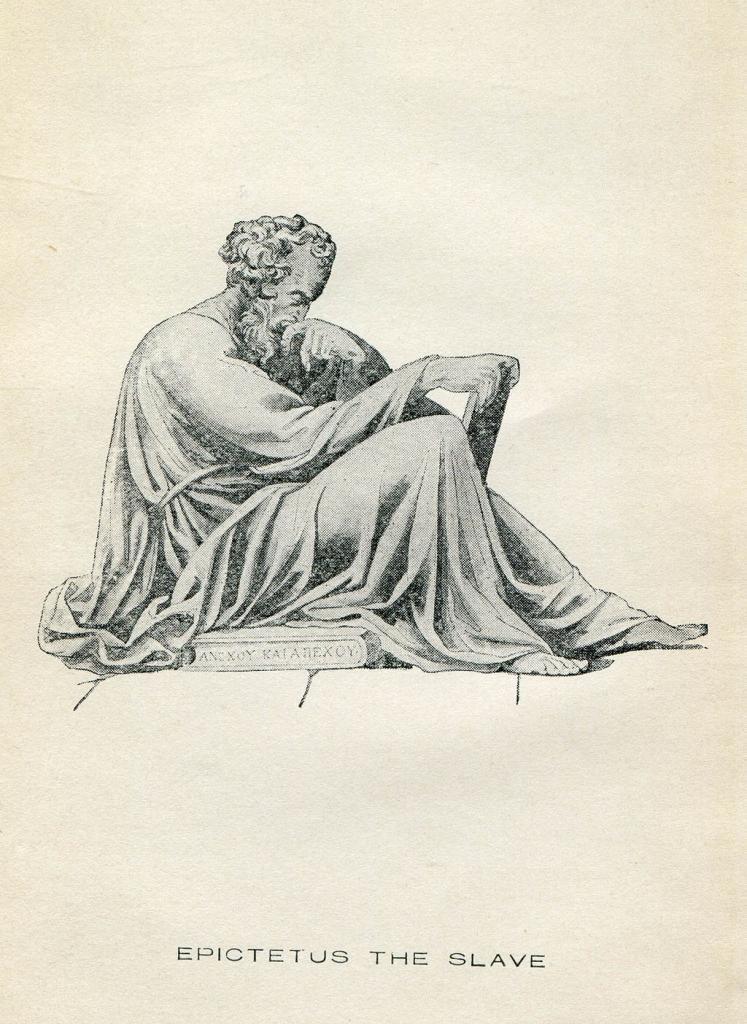
Introduction
Epictetus, a name synonymous with Stoicism, lived a life that was anything but ordinary. Born into slavery and later crippled, he rose above his circumstances to become one of the most influential philosophers. His teachings, deeply rooted in his personal hardships, continue to inspire and guide millions around the world. This blog post dives into Epictetus’s life and how it was shaped by his personal hardships and philosophy.
Early Life and Personal Hardships
Epictetus’s journey began in the ancient city of Hierapolis, Phrygia (Pamukkale in modern-day Turkey). Around 55 AD, he was born into a life of hardship from the very beginning. As a young child, he was sold into slavery, a circumstance that would profoundly shape his life and philosophy.
His master, Epaphroditus, was a high-ranking official in the court of Nero, the notorious Roman Emperor. Epaphroditus himself was known for his unpredictable and often harsh behavior. Living under such a master, Epictetus was exposed to the capriciousness of life at an early age. These experiences would later inform his Stoic philosophy.
In addition to the psychological strain of slavery, Epictetus also had to endure physical hardship. At some point during his years of servitude, he sustained a severe leg injury. The exact cause of the injury remains a mystery. But the result was a permanent physical disability that left him with a limp for the rest of his life. This physical limitation, however, did not dampen his spirit or intellectual curiosity.
Despite the harsh circumstances of his early life, Epictetus found a beacon of hope in the realm of philosophy. His master, recognizing his intellectual potential, allowed him to study under Musonius Rufus, a renowned Stoic philosopher of the time. This opportunity marked a pivotal turning point in Epictetus’s life. It was the beginning of his journey from a life of servitude to becoming one of the most respected philosophers.
Introduction to Philosophy and Stoicism
Epictetus’s introduction to philosophy came at a time when he needed it most. Stoicism, a philosophy founded in Athens by Zeno of Citium in the early 3rd century BC, became a beacon of hope for the young slave. Stoicism teaches that virtue, the highest good, is based on knowledge. It advocates for the development of self-control and fortitude as a means to overcome destructive emotions.
Stoicism also asserts that we don’t have control over and cannot rely on external events. Instead, we can only control ourselves and our responses. This philosophy resonated deeply with Epictetus, who lived in circumstances largely beyond his control. It provided him with a framework to navigate his life, shaping his thoughts, actions, and reactions.
Epictetus’s Philosophy
Epictetus’s interpretation of Stoicism was both profound and practical. He believed that while we cannot control the events that happen to us, we can control our responses to them. This belief was not just a theoretical concept for Epictetus. It was a practical guide that he applied to his own life, especially in dealing with his personal hardships.
One of his most famous teachings is encapsulated in the Enchiridion (Handbook). “Some things are in our control and others not.” This simple yet powerful statement encapsulates Epictetus’s philosophy. He urged his students to focus on things within their control (their beliefs, judgments, and actions) and to accept with equanimity the things beyond their control.
Influence and Legacy
Epictetus’s influence extends far beyond his lifetime. His teachings have shaped the thoughts of many great minds, from the Roman Emperor Marcus Aurelius to the modern cognitive-behavioral therapists. His Stoic philosophy has provided a framework for dealing with life’s challenges for many over the centuries.
Furthermore, in the realm of psychology, Epictetus’s philosophy has found a new home. Cognitive-behavioral therapy (CBT), a popular form of psychotherapy, draws heavily from Stoicism. It emphasizes the role of thought in the way we feel and behave. This mirrors Epictetus’s belief that it’s not events themselves that disturb us, but our interpretation of them.
Epictetus’s Teachings in the Modern World
In today’s fast-paced and often stressful world, Epictetus’s teachings have never been more relevant. His philosophy provides a roadmap for dealing with life’s challenges, from minor daily annoyances to major life-altering events. By focusing on what we can control and accepting what we can’t, we can develop inner peace and resilience5.
Epictetus’s teachings also offer a guide to living a fulfilling life. He advocated for living in accordance with nature and focusing on virtue as the highest good. In a world often driven by materialism and external validation, Epictetus’s philosophy serves as a reminder of what truly matters.
Conclusion
Epictetus’s life, philosophy, and legacy are a testament to the power of the human spirit. Despite the hardships he faced, he rose above his circumstances to become one of the most influential philosophers. His teachings, deeply rooted in his personal experiences, continue to guide and inspire millions around the world. As we navigate the challenges of our own lives, we can look to Epictetus’s philosophy as a beacon of resilience and wisdom.
In the face of adversity, Epictetus found strength in philosophy. His life serves as a reminder that no matter what we face, we have the power to choose our response. And in that choice lies our freedom and our ability to find peace and happiness.


Leave a Reply